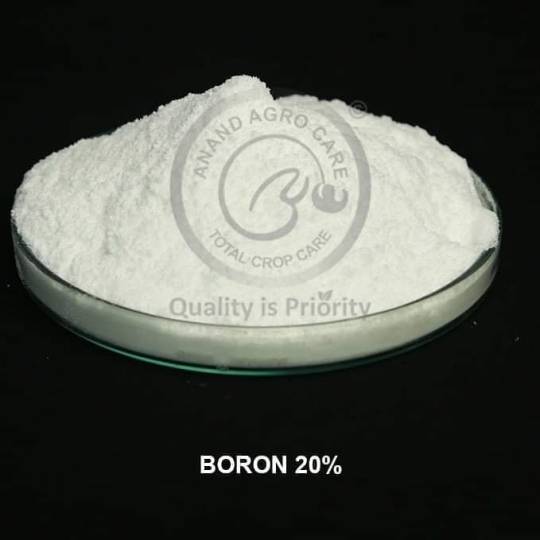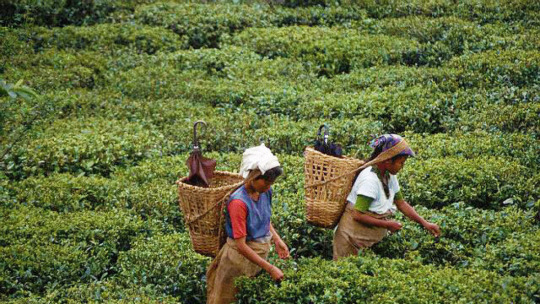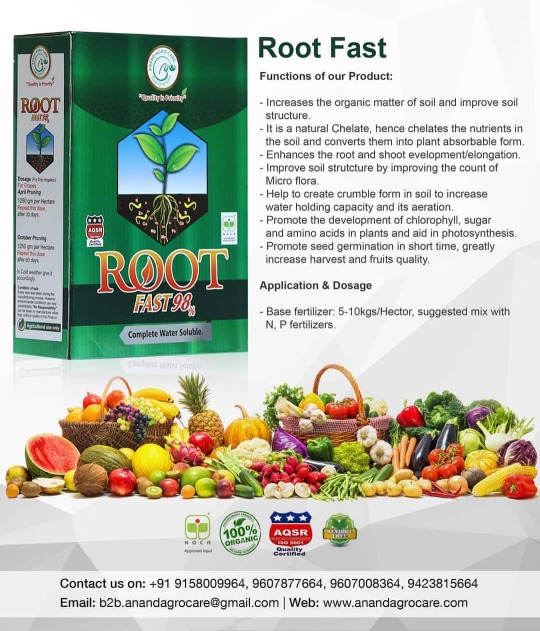#OrganicFarmingIndia
Text
The Rise of Sustainable Farming in India: A Comprehensive Guide

India, with its rich agricultural heritage, is witnessing a transformative shift towards sustainable farming practices. This change is essential for ensuring food security, preserving the environment, and promoting the well-being of farmers. In this comprehensive guide, we explore the rise of sustainable farming in India and its implications for the future.
Understanding Sustainable Farming
Sustainable farming is an agricultural approach that focuses on producing food in a way that is environmentally friendly, socially responsible, and economically viable. This practice aims to meet current food needs without compromising the ability of future generations to meet their own. It involves methods that reduce dependence on chemical inputs, conserve natural resources, and promote biodiversity.
The Need for Sustainable Farming in India
India’s agricultural sector faces several challenges, including soil degradation, water scarcity, and the adverse effects of climate change. Traditional farming methods, reliant on chemical fertilizers and pesticides, have exacerbated these issues, leading to reduced soil fertility and increased pollution. Sustainable farming practices offer a viable solution by promoting soil health, efficient water use, and reducing the carbon footprint of agricultural activities.
Key Practices in Sustainable Farming
Organic Farming
Organic farming is a cornerstone of sustainable agriculture. It eliminates the use of synthetic chemicals, emphasizing natural inputs like compost and green manure. This method improves soil fertility and promotes healthy crop growth, while also ensuring that produce is free from harmful residues.
Crop Rotation and Diversity
Crop rotation and diversity are essential practices in sustainable farming. Rotating crops helps prevent soil depletion and reduces pest and disease cycles. Diverse cropping systems increase resilience to environmental stress and enhance biodiversity.
Integrated Pest Management (IPM)
Integrated Pest Management (IPM) is a holistic approach to pest control that combines biological, cultural, physical, and chemical tools in a way that minimizes economic, health, and environmental risks. IPM promotes the use of natural predators and biopesticides, reducing reliance on chemical pesticides.
Conservation Agriculture
Conservation agriculture focuses on minimal soil disturbance, maintaining soil cover, and crop rotation. These practices enhance soil structure, increase water infiltration, and reduce erosion. Conservation agriculture is particularly beneficial in regions prone to soil degradation.
The Impact of Sustainable Farming on Indian Agriculture
The adoption of sustainable farming practices in India has shown promising results. Farmers report increased yields, improved soil health, and reduced input costs. Additionally, sustainable farming enhances the resilience of agricultural systems to climate change, ensuring long-term productivity and food security.
Economic Benefits
Sustainable farming can lead to significant economic benefits for farmers. By reducing dependency on costly chemical inputs, farmers can lower production costs and increase profitability. Moreover, organic and sustainably produced products often fetch higher market prices, providing an additional income boost.
Environmental Benefits
The environmental benefits of sustainable farming are substantial. These practices reduce soil erosion, enhance soil fertility, and conserve water resources. By promoting biodiversity and reducing greenhouse gas emissions, sustainable farming contributes to environmental sustainability and climate change mitigation.
Social Benefits
Sustainable farming also offers social benefits, particularly for rural communities. It promotes better health by reducing exposure to harmful chemicals and provides educational opportunities about sustainable practices. Moreover, it encourages community collaboration and knowledge sharing, strengthening social ties.
Challenges and the Way Forward
While the rise of sustainable farming in India is encouraging, several challenges remain. These include a lack of awareness, limited access to resources, and initial transition costs. However, with concerted efforts from government bodies, NGOs, and private enterprises, these challenges can be addressed.
Government Initiatives
The Indian government has launched several initiatives to promote sustainable farming. Schemes like Paramparagat Krishi Vikas Yojana (PKVY) and the National Mission for Sustainable Agriculture (NMSA) aim to support farmers in adopting eco-friendly practices. These initiatives provide financial assistance, training, and resources to facilitate the transition to sustainable farming.
Role of Private Sector and NGOs
Private enterprises and NGOs play a crucial role in promoting sustainable farming. Companies like kavyaorganicfarm are at the forefront, providing high-quality organic inputs, training, and market access to farmers. By fostering collaborations and investing in research, these entities can drive the growth of sustainable farming in India.
Conclusion
The rise of sustainable farming in India marks a significant shift towards a more resilient and eco-friendly agricultural system. By embracing practices that conserve resources, protect the environment, and support farmer livelihoods, sustainable farming holds the promise of a sustainable future for Indian agriculture. Kavyaorganicfarm is proud to be a part of this transformative journey, championing the cause of sustainable farming in India.
0 notes
Text
instagram
#article#nature#organic#organicfarming#ecofriendlyliving#farmtotable#organicfarmingpractices#organicfarmingindia#agriculture#sustainableagriculture#agricultureandfarming#kaaduorganics#kaadufarm#Instagram
0 notes
Text

"Biconic Mycorrhiza"
.
.
contact us: 080766 53207
#organic#organicfarming#farming#biofungicides#biopestisida#organicfarmingpractices#organicfarmingindia#organicproductsindia#organicfarmingproducts#fertilizers#freepesticide#garden#agriculture#agricultural#agriculturelife
0 notes
Text
Organic farming
Organic Farming
Major components of organic farming are crop rotation, maintenance and enhancement of soil fertility through biological nitrogen fixation, addition of organic manure and use of soil microorganisms, crop residues, bio-pesticide, biogas slurry, waste etc
#organicfarming__
#organicfarming#organic farming#organicfruits#organicvegetables#organicveggies#organicfood#organicfoods#organicfarmingindia
2 notes
·
View notes
Video
Did you knew this #Facts .................. It all starts with a seed. We work hard to ensure every seed is organic, non-GMO, and healthy from the beginning, so they can grow into the nutrient-rich plants 🌱 that power our #Artistry products you all know and love. #ArtistrySkinNutrition #FromOurFarms #NutriliteOrganicFarms #OrganicFarming #Traceability #organiccleaning #organicliving #organicfarmingindia #organiclife #Organicworld #organicproducts #organicfood #organicsoap #organicsupplements #organictea #organicvegetables #organicproduct #organiccosmetics #organicmakeup #chemicalfree #chemicalfreehome #chemicalfreeliving #chemicalfreefarming (at India) https://www.instagram.com/p/CRHlZIBBmbT/?utm_medium=tumblr
#facts#artistry#artistryskinnutrition#fromourfarms#nutriliteorganicfarms#organicfarming#traceability#organiccleaning#organicliving#organicfarmingindia#organiclife#organicworld#organicproducts#organicfood#organicsoap#organicsupplements#organictea#organicvegetables#organicproduct#organiccosmetics#organicmakeup#chemicalfree#chemicalfreehome#chemicalfreeliving#chemicalfreefarming
0 notes
Photo

💧Boron 20% 💧 Available in Bulk and Brand Packing! Contact or WhatsApp us on 📞8530834664📞 We are manufacturer of organic crop solutions for sustainable growth and yield of agricultural produce having manufacturing facilities at Nashik, Maharashtra. We are supplying our products to many reputed agricultural companies. Our products are well tested as per Government norms before packing. Thanks. For more information you can contact us on: Mobile No: +91- 8530834664 Email: [email protected] Visit us on:www.anadagrocare.com 🌱Anand Agro Care 🌱 Nashik, Maharashtra 🌱🌱🌱🌱🌱🌱🌱🌱🌱🌱🌱🌱🌱🌱🌱🌱🌱🌱🌱🌱🌱🌱🌱 Website - www.anandagrocare.com Facebook Page- https://www.facebook.com/anandagrocare1 Instagram- https://www.instagram.com/anandagrocare Twitter - https://twitter.com/anandagrocare YouTube - https://www.youtube.com/c/ANANDAGROCARE LinkedIn - https://in.linkedin.com/company/anand-agro-care 🌱🌱🌱🌱🌱🌱🌱🌱🌱🌱🌱🌱🌱🌱🌱🌱🌱🌱🌱🌱🌱🌱🌱 🍀if you need any Biofertilizer, Biofungicide, Biopesticide, Bioinsecticide. Plant growth promoter, chelated micronutrients🍀 All 100% organic and residue free product's available. Bulk Supplier, Job Work Available ! #anandagrocare #mycorhizae #organicfarmingindia #quality #Micronutrient #biopesticides #biofertilizers #herbalextracts #organiccertified #organic #bulkorders #B2B #comarketing #agriculture #PGR #biostimulant #nasik #maharashtra #Top10 https://www.instagram.com/p/CNjhApnBkQ_/?igshid=zvgocd9xq0sg
#anandagrocare#mycorhizae#organicfarmingindia#quality#micronutrient#biopesticides#biofertilizers#herbalextracts#organiccertified#organic#bulkorders#b2b#comarketing#agriculture#pgr#biostimulant#nasik#maharashtra#top10
0 notes
Link
The scope of organic farming in India is increasing day by day, the main reason behind the increase in organic farming is due to new research made in the field of agriculture
As many people have started focusing on their health. Products produced from conventional methods are now considered to be of lower quality when compared to the ones produced from organic farming.
1 note
·
View note
Link
0 notes
Text
Organic vs. Sustainable Farming in India: What's the Difference?

In recent years, the terms "organic farming" and "sustainable farming" have become buzzwords in the agricultural sector. However, they are often used interchangeably, causing confusion among consumers and farmers alike. Understanding the difference between organic farming and sustainable farming in India is crucial for making informed decisions about agriculture and food consumption. This blog will delve into the nuances of both farming practices, helping you comprehend their significance and impact.
What is Organic Farming?
Organic farming is a method of agriculture that focuses on growing crops without the use of synthetic pesticides, fertilizers, genetically modified organisms (GMOs), and other artificial chemicals. Instead, it emphasizes natural processes and inputs to maintain soil fertility and ecological balance.
Principles of Organic Farming
Soil Health: Organic farming in India prioritizes soil health by using compost, manure, green manures, and crop rotation to enhance soil fertility.
Biodiversity: It encourages biodiversity by planting a variety of crops, which helps in pest management and reduces the risk of disease.
No GMOs: Organic farming strictly prohibits the use of genetically modified organisms.
Natural Pest Control: Instead of synthetic pesticides, organic farmers use natural methods like beneficial insects, neem oil, and trap crops to control pests.
What is Sustainable Farming?
Sustainable farming, on the other hand, is an umbrella term that encompasses various farming practices aimed at maintaining and improving the productivity of the land while minimizing environmental impact. This approach considers long-term ecological balance, economic viability, and social equity.
Principles of Sustainable Farming
Resource Efficiency: Sustainable farming in India focuses on using water, energy, and other resources efficiently to reduce waste.
Ecosystem Health: It aims to protect and enhance the natural environment, including soil, water, and biodiversity.
Economic Viability: Sustainable farming practices ensure that farming is economically feasible for farmers, promoting fair wages and supporting local communities.
Social Responsibility: This approach considers the social aspects of farming, including workers' rights and community well-being.
Key Differences Between Organic and Sustainable Farming
While both organic and sustainable farming share some common goals, they differ significantly in their approaches and principles.
Inputs and Practices
Organic farming strictly prohibits synthetic chemicals and GMOs, relying solely on natural inputs. Sustainable farming, however, is more flexible and may use synthetic inputs if they do not harm the environment and contribute to the long-term sustainability of the farm.
Certification
Organic farming often requires certification to ensure that the practices meet specific standards set by organic certification bodies. In India, this is governed by agencies like the National Programme for Organic Production (NPOP). Sustainable farming does not have a universal certification standard and can vary widely in its implementation.
Focus and Scope
Organic farming primarily focuses on the methods of crop production, emphasizing natural inputs and processes. Sustainable farming takes a broader view, incorporating economic and social aspects along with environmental considerations. It seeks a holistic approach to farming that ensures long-term viability and minimal ecological footprint.
The Impact of Organic and Sustainable Farming in India
Organic Farming in India
Organic farming in India has seen significant growth due to increased consumer awareness about health and environmental benefits. Farmers adopting organic practices often find better market prices and a niche consumer base willing to pay a premium for organic produce. However, the transition to organic farming can be challenging due to the initial lower yields and the need for substantial knowledge and skills.
Sustainable Farming in India
Sustainable farming is gaining traction as it addresses broader issues like climate change, resource depletion, and social equity. Indian farmers adopting sustainable practices can contribute to a more resilient agricultural system, capable of withstanding environmental shocks and economic fluctuations.
Conclusion
In conclusion, understanding the differences between organic and sustainable farming in India is essential for making informed choices that benefit both the environment and society. Organic farming focuses on natural inputs and processes, while sustainable farming encompasses a wider range of practices aimed at long-term ecological, economic, and social sustainability.
At Kavya Organic Farm, we are committed to promoting the best practices in organic farming, ensuring that our produce is not only healthy and safe but also environmentally friendly. By supporting Kavya Organic Farm, you contribute to a healthier planet and a sustainable future.
0 notes
Photo

Organic Food Logo Design - To be a Vehicle of Consciousness in the global market by creating an holistic, sustainable business modality, which inspires, promotes and supports True Wellness and respect for all Beings and for Mother Nature.. - Latest work or hire at www.logodesignco.in ------------------- #logodesigning #logodesignservices #logodesignideas #logodesignlovers #mumbai #pune #kolkatta #gurgaon #noida #delhi #goa #newdelhi #banglore #logodesigncompany #logodesignservice #bestlogodesigner #bestlogoever #brandidentitydesign #brandidentitydesigner #logodesigner #logo #logodesignerindia #logodesignershub #logodesignstudio #organiclogo #organicfoodlogo #greenlogo #organicfarming #organicfarmingindia #purefood (at Mumbai, Maharashtra) https://www.instagram.com/p/CU2z3-gBHrO/?utm_medium=tumblr
#logodesigning#logodesignservices#logodesignideas#logodesignlovers#mumbai#pune#kolkatta#gurgaon#noida#delhi#goa#newdelhi#banglore#logodesigncompany#logodesignservice#bestlogodesigner#bestlogoever#brandidentitydesign#brandidentitydesigner#logodesigner#logo#logodesignerindia#logodesignershub#logodesignstudio#organiclogo#organicfoodlogo#greenlogo#organicfarming#organicfarmingindia#purefood
0 notes
Text
instagram
#article#nature#organic#organicfarming#ecofriendlyliving#farmtotable#organicfarmingpractices#organicfarmingindia#agriculture#sustainableagriculture#agricultureandfarming#kaaduorganics#kaadufarm#Instagram
0 notes
Text
How to Start Your Own Organic Agriculture Company in India

The organic farming sector is witnessing significant growth in India, driven by increasing consumer awareness about health and environmental sustainability. Starting your own organic agriculture company in India can be a rewarding venture, both financially and ethically. This guide will walk you through the essential steps to establish and grow your organic farming business, ensuring you make informed decisions along the way.
Understanding Organic Farming:
Before diving into the business, it’s crucial to understand what organic farming entails. Organic farming avoids synthetic chemicals, relying instead on natural processes and inputs to cultivate crops. This method promotes soil health, biodiversity, and sustainability, making it an attractive choice for modern consumers.
Steps to Start Your Own Organic Agriculture Company in India:
1. Market Research and Planning:
Begin by conducting thorough market research. Understand the demand for organic products in your target area, identify your competition, and determine what crops are most in demand. This research will help you develop a robust business plan, outlining your business goals, target market, marketing strategy, and financial projections.
2. Selecting the Right Location:
The success of your organic farming business largely depends on choosing the right location. Look for land with fertile soil, adequate water supply, and favorable climatic conditions for the crops you plan to grow. It’s also beneficial to be near markets where you can sell your produce.
3. Certification and Legal Requirements:
To sell your produce as organic, obtaining certification is mandatory. In India, the Agricultural and Processed Food Products Export Development Authority (APEDA) regulates organic certification. Familiarize yourself with the National Programme for Organic Production (NPOP) standards and apply for certification through an accredited agency. Ensure you comply with all legal and environmental regulations to avoid any future hassles.
4. Sustainable Farming Practices:
Implement sustainable farming practices that align with organic farming principles. Use organic seeds, natural fertilizers like compost and manure, and eco-friendly pest control methods. Crop rotation, polyculture, and green manure are essential techniques to maintain soil health and fertility.
5. Building a Knowledgeable Team:
Having a team knowledgeable in organic farming practices is crucial for success. Hire or train staff in organic farming techniques, soil management, and pest control. Continuous education and training will help your team stay updated with the latest organic farming trends and innovations.
6. Infrastructure and Equipment:
Invest in essential infrastructure and equipment needed for organic farming. This includes irrigation systems, storage facilities, composting units, and farming tools. Efficient infrastructure and modern equipment can significantly enhance productivity and reduce labor costs.
7. Marketing and Sales Strategy:
Develop a strong marketing and sales strategy to reach your target audience effectively. Utilize digital marketing, social media, and local farmers' markets to promote your products. Highlight the benefits of organic produce, such as health advantages and environmental sustainability, to attract health-conscious consumers.
8. Building Relationships:
Establish strong relationships with suppliers, retailers, and customers. Networking with other organic farmers and joining organic farming associations can provide valuable insights and support. Collaborating with local restaurants, supermarkets, and online platforms can also expand your market reach.
9. Continuous Improvement:
Organic farming is a dynamic field with continuous advancements in techniques and practices. Stay updated with the latest research, attend workshops, and be open to adopting new methods that can improve the quality and yield of your produce.
Conclusion:
Starting your own organic agriculture company in India is a fulfilling endeavor that requires careful planning, dedication, and continuous learning. By following these steps, you can establish a successful organic farming business that meets the growing demand for sustainable and healthy food. Companies like Kavya Organic Farm serve as excellent examples of how commitment to organic farming principles can lead to a thriving business. Embark on your journey to contribute to a healthier planet and a more sustainable future by starting your own organic agriculture company in India.
0 notes
Text
Educational Programs on Sustainable Farming in India

As the world grapples with environmental challenges and the need for sustainable development, the significance of sustainable farming in india practices has never been more apparent. In India, educational programs on sustainable farming are pivotal in transforming agricultural practices and empowering farmers to adopt eco-friendly methods. These programs not only enhance the knowledge and skills of farmers but also contribute to the overall health of the environment and the economy. Let's explore how these educational initiatives are shaping the future of Indian agriculture, with a special focus on the contributions of Kavya Organic Farm.
Understanding Sustainable Farming:
Sustainable farming refers to agricultural practices that prioritize environmental health, economic profitability, and social equity. These practices include crop rotation, organic farming, integrated pest management, and agroforestry. Sustainable farming aims to meet current food needs without compromising the ability of future generations to meet their own needs.
The Need for Educational Programs on Sustainable Farming:
Despite the clear benefits of sustainable farming, many farmers in India lack the knowledge and resources to implement these practices effectively. Educational programs on sustainable farming address this gap by providing farmers with the necessary training and tools. These programs cover a wide range of topics, including soil health management, water conservation, organic farming techniques, and market access for sustainably produced goods.
Key Components of Educational Programs:
Workshops and Training Sessions:
Educational programs often include hands-on workshops and training sessions. These sessions allow farmers to learn about sustainable farming practices through practical demonstrations and field visits. They cover essential topics such as composting, crop diversification, and natural pest control methods.
Online Courses and Resources:
With the advent of technology, online courses have become an integral part of educational programs on sustainable farming. These courses offer flexibility and accessibility, enabling farmers from remote areas to gain knowledge at their own pace. Online resources include video tutorials, e-books, and interactive forums.
Collaboration with Agricultural Institutions:
Many educational programs collaborate with agricultural universities and research institutions. These partnerships facilitate the exchange of knowledge and the latest research findings. Farmers benefit from expert insights and can apply cutting-edge techniques to their farming practices.
Community-Based Learning:
Community-based learning initiatives promote peer-to-peer knowledge sharing. Farmers gather in groups to discuss challenges, share experiences, and collectively solve problems. This approach fosters a sense of community and mutual support among farmers.
Success Stories:
Educational programs on sustainable farming have already shown promising results across India. For instance, in the state of Andhra Pradesh, the Community Managed Natural Farming (CMNF) program has trained over 500,000 farmers in sustainable practices. This initiative has led to increased crop yields, improved soil health, and higher incomes for participating farmers.
The Role of Kavya Organic Farm:
Kavya Organic Farm is at the forefront of promoting sustainable farming in India through its comprehensive educational programs. By offering workshops, online courses, and community-based learning sessions, Kavya Organic Farm equips farmers with the skills and knowledge needed to implement sustainable practices. The farm's commitment to sustainability extends beyond training; it also provides ongoing support and mentorship to ensure the successful adoption of these practices.
Conclusion:
Educational programs on sustainable farming in India are crucial for building a resilient agricultural sector. By empowering farmers with the knowledge and tools to adopt sustainable practices, these programs contribute to environmental conservation, economic stability, and social well-being. Kavya Organic Farm is a shining example of how dedicated efforts in education and training can drive positive change in the agricultural landscape. As the demand for sustainable farming practices grows, Kavya Organic Farm's educational initiatives are set to play a pivotal role in shaping the future of farming in India.
0 notes
Photo

Root Fast 98% (Powder) Root fast is a natural blend of Potassium Humate and some organic materials. It will enhances root initiation and helps in root growth. It will regulate hormone levels in the plants and improves the tolerance against biotic and abiotic stress. It also improves soil health and improves the nutrient uptake capacity of the plant Application & Dosage :- Foliar Spray :- 1 to 1.5 gm per liter/ 1 to 1.5 ml per liter Soil application & Drip Irrigation :- 500 gm to 1 Kg per acre/ 500 ml to 1 liter per acre Targeted Crops :- All Vegetables, Fruits & other Crops Available Packing :- 500 gm & 1 Kg/ 500 ml & 1 liter (This product is available in both Powder and Liquid) 🌾🌾🌾🌾🌾🌾🌾🌾🌾🌾🌾🌾🌾🌾 🍀if you need any Biofertilizer, Biofungicide, Biopesticide, Bioinsecticide. Plant growth promoter, chelated micronutrients🍀 All 100% organic and residue free product's available. Bulk Supplier, Job Work Available ! #anandagrocare #mycorhizae #organicfarmingindia #quality #Micronutrient #biopesticides #biofertilizers #herbalextracts #organiccertified #organic #bulkorders #B2B #comarketing #agriculture #PGR #biostimulant #nasik #maharashtra #Top10 (at Anand Agro Care) https://www.instagram.com/p/CNjgquDhTr0/?igshid=6zb8aorl38d2
#anandagrocare#mycorhizae#organicfarmingindia#quality#micronutrient#biopesticides#biofertilizers#herbalextracts#organiccertified#organic#bulkorders#b2b#comarketing#agriculture#pgr#biostimulant#nasik#maharashtra#top10
0 notes
Photo

Dear Friends किसान Farmers You are invited for a special Event on APSA-80. किसान भाई खेती के लाभ के लिये समय निकाले। *Key Highlights* 👉 Learn unique features and benifits of APSA-80 👉 Live Demo for APSA-80 👉 Expert Talk by Leaders on APSA - 80 *DATE: 25th August* *Time- 5 PM* *ZoomLink:* - Join Zoom Meeting https://us02web.zoom.us/j/89307320691?pwd=M3M1OEpyN0hFbi9kYWl5elNLcVpPZz09 Meeting ID: 893 0732 0691 Passcode: 12345 Regards, Pushker Singh Nayal Whatsapp me for more details :- 9411777617 #organicfarmingindia #organicfarming #farmingtips #bestfarmingpractices (at Nainital, Uk) https://www.instagram.com/p/CETExAJB85F/?igshid=r9vhcgdffjfe
0 notes
Photo

We go beyond usual paperwork whenever a shipment of ingredients comes in. About 60%-70% of the raw materials are pulled aside for a full test. At Amway, we make sure that every Nutrilite™ product comes from wholesome sources. #AbsolutelyAmway #organicfarming #organicgardening #organicfarmingindia #organicingredients #feelproud #bestingredients (at India) https://www.instagram.com/p/CEQT4rTBzTz/?igshid=1quoe5ven5ykc
#absolutelyamway#organicfarming#organicgardening#organicfarmingindia#organicingredients#feelproud#bestingredients
0 notes